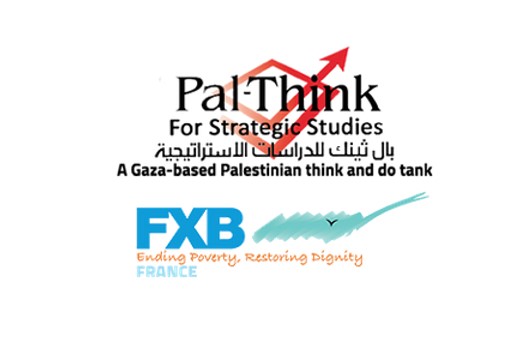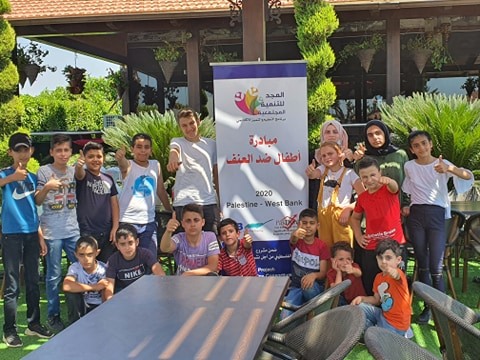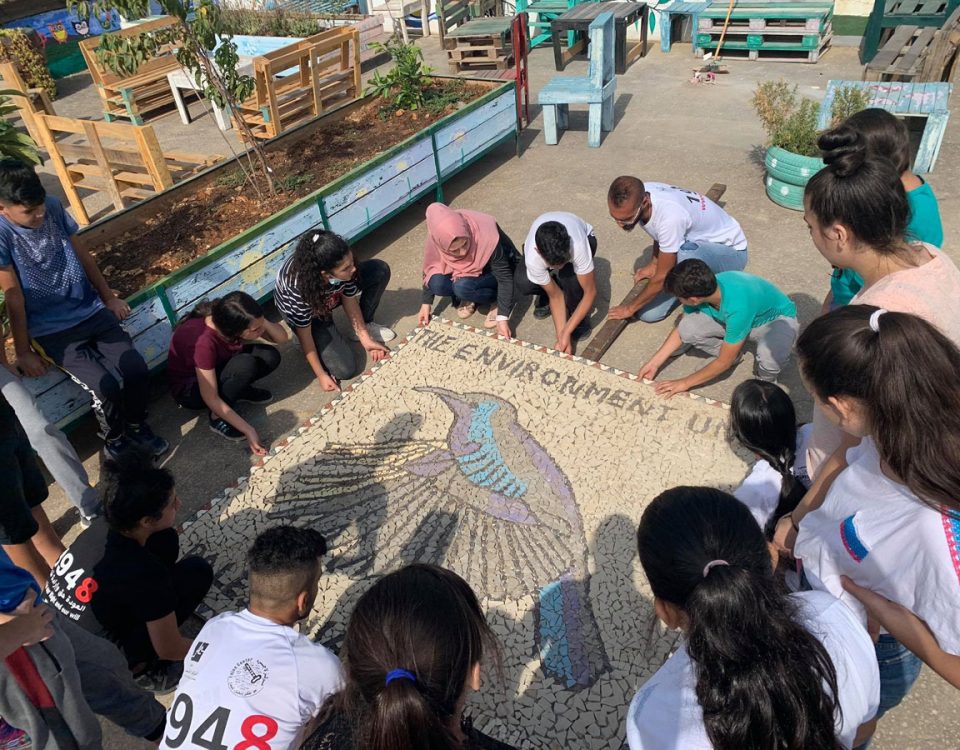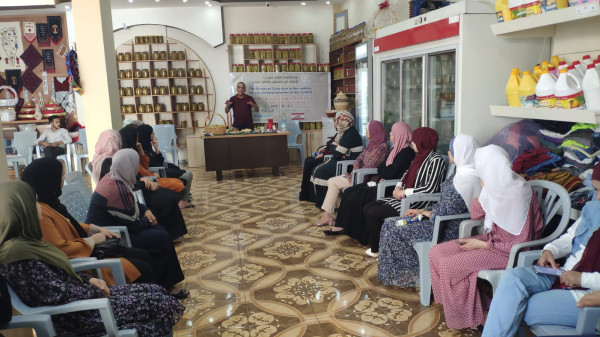- Contact Us
- +972 8-282-2005
- info@palthink.com
15th episode: International Experiences in Promoting Non-violence in Palestine”

“Reducing Violence within Palestinian Society” Conference
22 October، 2019
14th Radio episode ” The Role of University Student Councils in Promoting Non-Violence Culture among Students.”
22 October، 2019This time, and within the radio program” Nonviolence is a lifestyle”, Pal-Think talked about the international experiences in promoting non-violence. Moreover, how to invest in the Palestinian scene within the Non-Violence approach of Hayat program. Which is a broadcast as radioactivity for the “The Palestinian Consortium for Nonviolence” project, implemented by Pal-Think and FXB France to spread the culture of non-violence. They hosted the manager of Pal-Think for strategic studies Omar Sha’ban and Dr. Ayman Youssef, who is responsible for resolving conflicts department at Arab American University.
In the beginning, Omar Shaaban stressed that the nonviolent approach and the call for dialogue and tolerance have been and continue to be the main title followed by Pal Think since its inception. This has been translated more than once, especially in the quest for the success of Palestinian reconciliation through its contribution to the production of what is known as the Swiss paper, which is the basis for the reconciliation rounds. Besides, Pal-Think interacts with the world in terms of national reconciliation, adding that infighting between peoples, whether internal or cross-border “inter-state”. Wars has existed since the creation of Adam and many peoples have gone through infighting, some of them succeeded in overcoming these fighting quickly without paying a high price and what happened in Sudan reflects this case dazzlingly and proudly. Unlike Algeria, which has yet to overcome mobility, economic paralysis and street strikes. Moreover, some peoples have not been able to overcome the fighting until after the widespread killing and violence, such as in Colombia, where more than 80 thousand people were killed during 30 years of conflict. In Rwanda, in a matter of months, more than a million people have been killed. However, after they reached an agreement and held elections, Rwanda became the best country in Africa and achieved the highest growth in the world.
Shaaban said, “The Palestinian people have been divided for twelve years. Luckily, not many of them were killed when compared to other models. At Pal Think, we wanted to promote nonviolence as a means of dialogue and conflict resolution as an alternative to existing violence. This is consistent with the word of God, religion, and morality, our promotion of non-violence is not aimed at organizations, but at individuals in their daily lives at school in different institutions, work, within the family and even in the neighborhood between neighbors. It is an invitation to be peaceful in our conversation, and we try to convince the other of our ideas and reach dialogue to a common point. Dialogue is the only way for countries to embrace the future. He added that the philosophy of Pal-Th
ink by launching this project and others is to work with all groups and segments of society with all the institutions operating in the whole country where there is activities in Hebron, Rafah, Ramallah, Gaza and all areas in the West Bank and Gaza Strip. There are also plans to penetrate the region and neighboring countries to work on raising the level of awareness of all Palestinians all over the world.
For his part, Dr. Ayman Yousef said in a telephone interview that the issues of violence and non-violence, war and peace, need to study in-depth philosophical. We also need a deep thinking, vision, and strategy, adding that we do not need to study non-violence in Palestine in order to develop final solutions. However, because we need to manage our differences peacefully it is almost in the democracies and this is not just my opinion, it is the opinion of most workers in the field of democracy and human rights, Working within these systems encourages the individual, groups, organizations, political parties and civil society organizations to manage their differences peacefully. This is one of the ways to get rid of the polarization, the intractability and the fragmentation in our own situation and others. Moreover, that would go to the ballot box, putting people in anger rather than on the street.
Yousef stressed that sitting at the negotiation table between two rival groups is not easy, so this process must go through three basic phases. The first phase is called peacemaking, and it is the signing of an agreement between the leading elites in two groups and then the stage of establishing clear mechanisms to protect this agreement. Finally, we go to the stage of internal peace building. It is not between the two groups, but we involve civil society organizations, media, academics, intellectuals, social movements, and others because the process of building internal community peace is a comprehensive process that targets all sectors of society because, despite its political framework, it intervenes in all areas of society. In addition, interact with life aims to achieve distributive justice and equality.
He added that civil society institutions have passed through an exceptional one as they work in an under-occupation area, but they have worked well on the files of promoting democracy and human rights, individuals and women, all of which works to alleviate the situation of congestion. Noting that what distinguishes Pal-Think, we went directly into the field, and not only theoretical framing and presentation of concepts came with a range of skills such as communication skills and negotiation and mediation skills. In addition to presenting petitions and conferences, and these tools that work to transform society from the state of exclusion and exclusion to the state of distributive justice, and this is part of what we need The Palestinian situation, especially in regard to conflict resolution. We also need more of these efforts and take advantage of the world’s experiences concerning resolving disputes peacefully.




